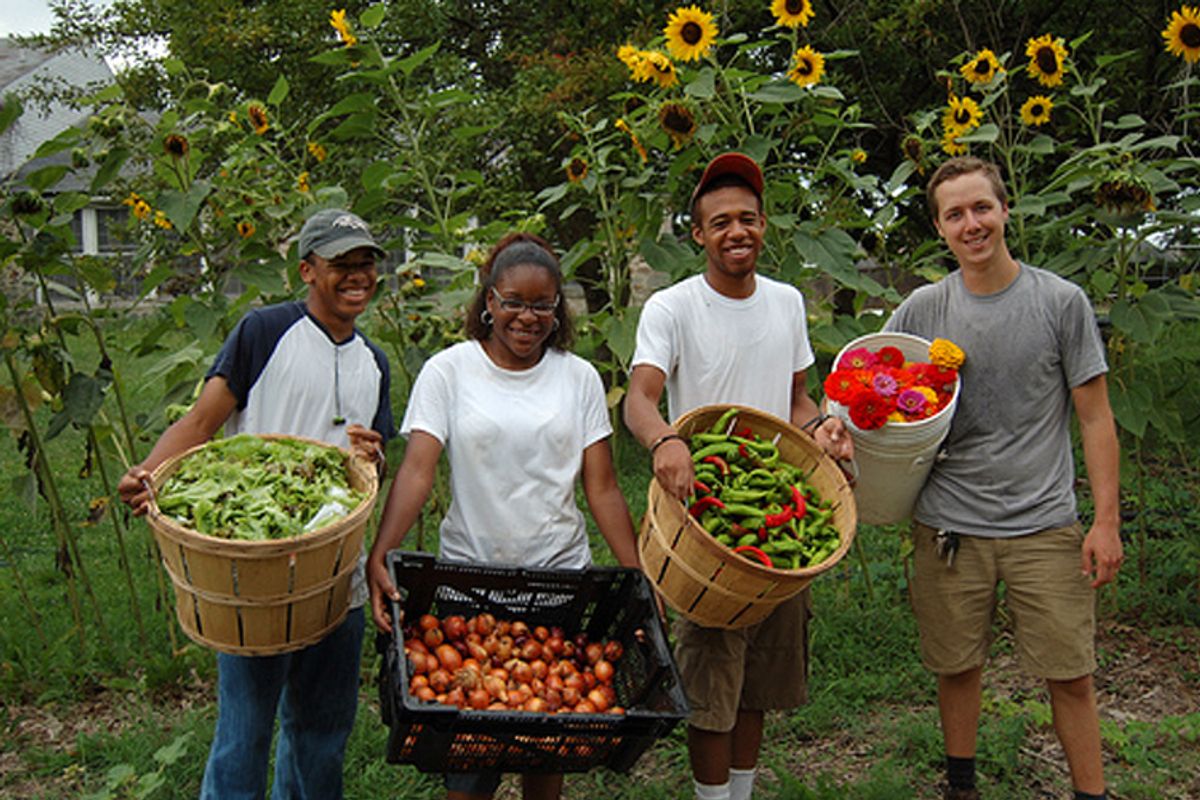Urban farmers are coming to the rescue in dozens of city neighborhoods where you're about as likely to find a fresh tomato as you are to find a unicorn on the sidewalk. But if "urban farmer" calls up visions of an old hippie hoeing a quaint little patch of sunflowers in the shadow of high-rises, think again. Modern urban farming is about block parties with DJs and cooking lessons. It's raising fish in indoor tanks and getting outdoor education in city schools. It creates meaningful jobs for inner city youth who learn to plan food systems and cultivate crops. But most of all, it's about ingenuity. Urban agriculturists see potential where others sees blight, seeking out vacant lots and neglected open spaces, looking at what they have within arm's reach rather than thinking about what's missing.
This slide show is a tour of some of the country's most innovative approaches to urban agriculture. These are farms and gardens created in the service of education and activism. Whether they're training entrepreneurs, teaching kids to grow organic kale, or producing food from plots no bigger than your living room, the urban approach to farming is about feeding, not being fed.



Shares